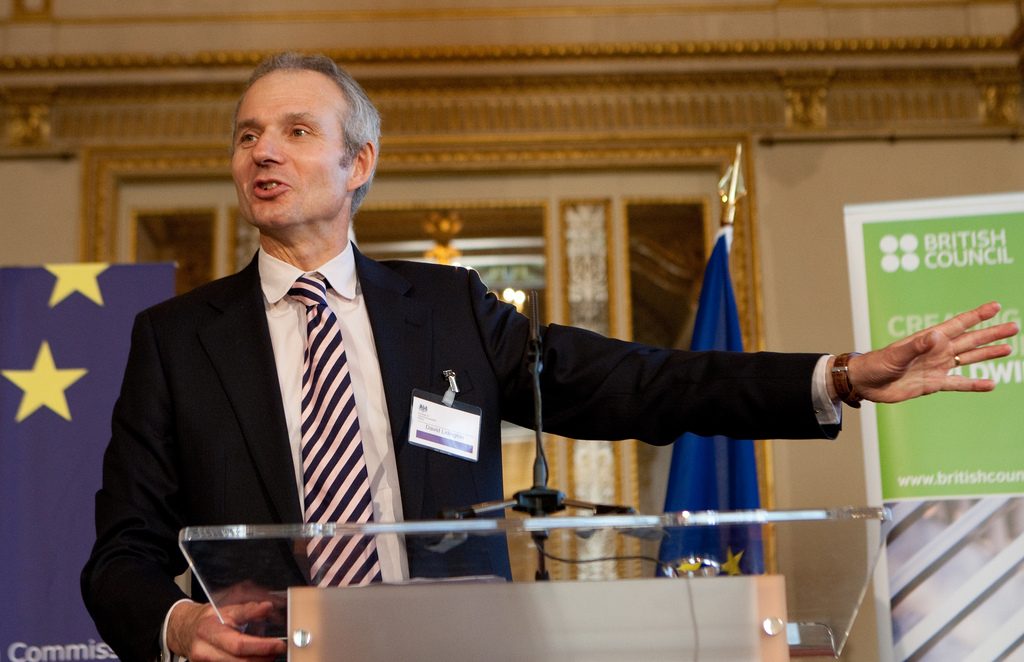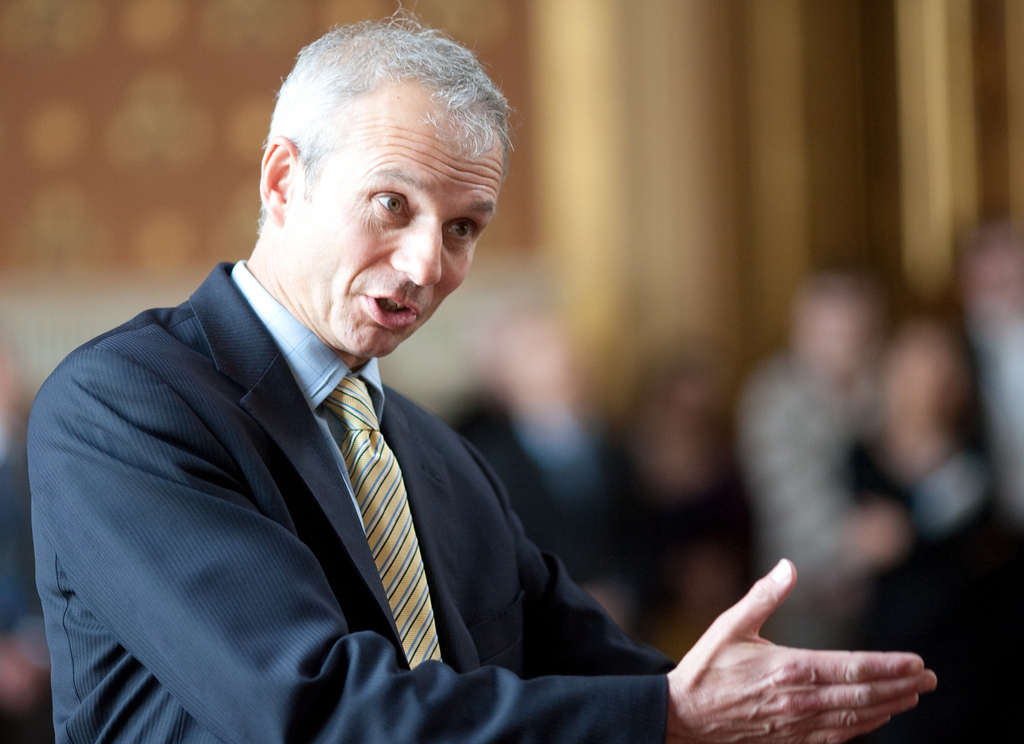David Lidington has just become our new Justice Secretary, replacing Liz Truss. Some of the key responsibilities of the role rest around our human rights – prison and court reform, tackling extremism, protecting access to justice and the rule of law are just a few examples. So, what does Mr Lidington think?
The new Justice Secretary has a consistent record of promoting human rights abroad, supporting “the principle that human rights are universal and indivisible”. He’s blogged about freedom of expression and the media overseas, the need to promote human rights in Iran and Syria and has spoken about human rights abuses in China, Burma and Zimbabwe. He’s also regularly talked about international human rights in Parliament and in the press.
During his previous role as Europe Minister, Mr Lidington also praised the Human Rights Convention (though he said the Human Rights Court needed reform):
The Convention and the Court helped protect and entrench rights that we so often take for granted: freedom of religious and political expression; the right to a fair trial; the principle that government, police and prisons are under the law; freedom from unfair discrimination.
In September 2016, speaking as the Leader of the House of Commons, he said “the entire government … stand by the human rights embodied in the European convention, which after all was very much the product of work by United Kingdom jurists and politicians at the time”.
So he supports the Human Rights Act 1998?
 Image Credit: Foreign and Commonwealth Office / Flickr
Image Credit: Foreign and Commonwealth Office / Flickr
Actually, no. You might think, given his praise of the Human Rights Convention, that Mr Lidington would also support the Human Rights Act. They basically protect the same rights. But the Justice Secretary appears to agree with Theresa May that the Human Rights Act 1998 “has to go” (though this was put on the back burner in the 2017 Conservative manifesto).
In May 2016, Mr Lidington voted to repeal the Human Rights Act. In September 2016, he said that “the human rights of the United Kingdom were well developed, established and had a fine reputation before the enactment of the Human Rights Act 1998”. He’s pointed out that Article 8 has caused particular problems in extradition cases.
What’s his position on some specific human rights?
Following his appointment at the weekend a number of sources criticised Mr Lidington’s human rights record, with particular focus on his opposition to gay rights.
New Justice Secretary David Lidington opposed gay rights and wanted to scrap Human Rights Act #reshuffle https://t.co/5DNwxihc2Y pic.twitter.com/Jocv4y7RSf
— i newspaper (@theipaper) June 13, 2017
In 1998, Mr Lidington voted against reducing “the age of consent for homosexual acts” from 18 to 16 (before 2000, the UK had a higher age of consent for homosexuals). In 2003, he voted to keep “Section 28” – the controversial ban on the promotion of homosexuality in schools.
In May 2013, he was one of 154 MPs who voted against gay marriage. He explained his opposition to his local paper, saying that the purpose of marriage was “not only to provide mutual love and commitment but also for the procreation and care of children“. However, he’s open to changing his views: he said in the same interview that he was “mistaken” to have previously voted against civil partnerships.
A quick glance at Mr Liddington’s voting history in Parliament shows his position on a range of other issues including:
- Access to justice: Mr Lidington has said he cares “strongly” about “access to justice for all”. However, he’s generally voted to restrict access to legal aid, making it more difficult for people to access justice and protect their human rights.
- Women’s rights: He’s also voted several times to restrict abortion rights. In 2011 he voted that in favour of banning abortion providers from offering counselling services. He also voted twice to bring the time limit of abortions down to 12 and 16 weeks in 2008.
- National security: In 2013 Mr Lidington voted in favour of controversial “secret trials” (“closed material proceedings”). These courts have been widely criticised for violating human rights.
- Mass surveillance: Mr Lidington voted in favour of the Investigatory Powers Act (also known as the “Snoopers’ Charter“), which allows for mass surveillance and retention of information on people’s internet usage.
- The rights of immigrants and asylum seekers: In 2016, the Justice Secretary voted against banning the immigration detention of pregnant women. He’s generally voted in favour of stricter asylum rules (including against giving asylum seekers permission to work if a decision on their application takes over six months).
- The rights of EU citizens: Following Brexit (he campaigned to Remain), Mr Lidington voted against efforts by the House of Lords to guarantee the rights of EU citizens in the UK. He said this step would result in UK citizens becoming “bargaining chips”. Here he is speaking on the BBC’s Sunday Politics about the rights of EU citizens in the UK:
“Unilateral gesture will make us feel good but British citizens overseas will then become bargaining chips” says @DLidington #bbcsp pic.twitter.com/ArZSG8rWVr
— DailySunday Politics (@daily_politics) March 5, 2017
Video Credit: BBC Sunday Politics/Twitter
Mr Lidington clearly believes in the principle of human rights, and is proud of the UK’s “high human rights standards“, even if he may not be the Human Rights Act’s biggest fan. Let’s hope he ensures these standards are vigorously protected in his work as Justice Secretary.
Want to know more about the fallout from the election?
- Read our piece on what the election result could mean for our human rights
- See our breakdown of the winners and losers of the election
- Take a look at our right to free and fair elections in this beautiful infographic







